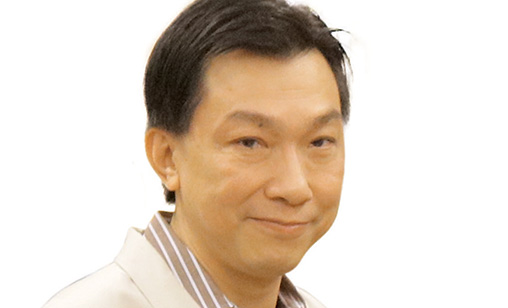News
THAI announces new president after lengthy leadership vacuum
June 1st 2018
After 18 months without a permanent leader, Thai Airways International (THAI) announced in May that Sumeth Damrongchaitham is the new president and CEO of the airline. Read More » He will take up the position in August following the retirement of acting president, Usanee Sangsingkeo.
An aviation novice, 53-year-old Sumeth is the managing director of asset management firm, Dhanarak Asset Development, which is 99.99% owned by Thailand’s Ministry of Finance. It invests and manages state holdings, including government complexes in Bangkok.
 |
Like AirAsia co-founder Tony Fernandes, Thai AirAsia CEO Tassapon Biljeveld and former Nok Air CEO, Patee Sarasin, a large part of Sumeth’s career has been spent in the music industry. For several years he was CEO of GMM Grammy, the kingdom’s largest entertainment company. GMM was founded by Sumeth’s uncle, Paiboon Damrongchaitham, in 1983 and the family continues to hold an almost 50% shareholding in the listed company.
Sumeth’s new job will be challenging, not least because the state-controlled carrier’s board is stacked with civil servants and former members of the air force who are slow to make decisions. But his tasks are clear: return THAI to profit, trim its bloated workforce and simplify the airline’s fleet. THAI has been in the red for most of the last decade, including a net loss in 2017.
THAI was due to place a wide body order last December, but the board did not approve the proposal because of the airline’s dire financial state. “We are still working on the final list for 17, 18, 19 or 20 mostly wide body aircraft from Airbus or Boeing to replace the B747-400, B777-200 and B737-400 fleets. We must simplify the fleet,” THAI VP for commercial strategy and alliances, Krittaphon Chantalitanon, told Orient Aviation last month. He said the board would make a decision by “the middle of the year” and “no later than the third quarter”.
THAI operates eleven aircraft types: 15 A330-300s, 12 A350-900s, six A380s, 32 B777s (-200s, -200ERs, -300s and -300ERs), 10 B747-400s, eight B787s (six -8s, two -9s) and one B737-400. Its B787 fleet has been crippled by recurring Rolls-Royce Trent 1000 issues with the carrier forced .to frequently ground its Dreamliners. “We need to take that into consideration when making fleet and order decisions,” Krittaphon said. “The issue has been going on for almost two years.”
The THAI strategy VP said the airline was “very satisfied” with the performance of its A350-900 and B777-300ER fleets, so new orders for these types would help simplify the fleet. He praised the reliability and passenger acceptance of the A380, but said a top-up order remained “highly unlikely”. Krittaphon said the A380 was doing “very well to Northeast Asia, especially in the premium classes” and premium sales on the A380 flagship routes to Frankfurt, Paris and London were “satisfactory”, but there was a lot of seasonal fluctuation. “Often it’s too much, but sometimes not enough capacity,” he said.
At the delivery of the airline’s 12th A350-900 in Toulouse last month, THAI A330 & A350 chief technical pilot, Capt. Itt Sirisawat, told Orient Aviation exclusively: “We are retrofitting the A330 fleet with lie-flat seats starting this month [May]. The first three aircraft have entered the shop. Business class will be reduced from 36 to 31. The work is being done at Airbus in Singapore.”
THAI and its subsidiaries posted a first quarter net profit of THB2.737 million (US$85.3 million) to March 31. Operating profit was THB3.836 million, a 49.4% increase compared with the same period last year. Load factor decreased slightly to 80.6%, from 82.8%, but the figure was a 10-year average high.
THAI said the rising oil price is the deciding factor now. “We’re back at 80 [US$/barrel]. Every cent has an impact on the balance sheet. We need to be very cautious,” THAI said.
THAI still cannot return to the U.S. The International Civil Aviation Organisation lifted its red flag against the country last year, but the U.S. Federal Aviation Administration (FAA) did not. THAI hopes Thailand’s FAA Category 1 status will be reinstated by October.
A Star Alliance founding member,THAI plans to enroll its Thai Smile subsidiary in the alliance’s ‘Connecting Partner’ model, Krittaphon said. “We’ve been working on that since day one actually,” he said. “It may not be this year but hopefully next. We’ve recently switched from Navitaire to Amadeus [at Thai Smile] to make the transition easier.” Thai Smile operates 20 A320ceo on regional routes, including longer flights to India and China.
Krittaphon added: “We’re still coping at Suvarnabhumi. But thankfully expansion is underway, including the Mid Field Terminal, Runway 3 and Terminal 2.” The three projects should be completed in the next three to four years.